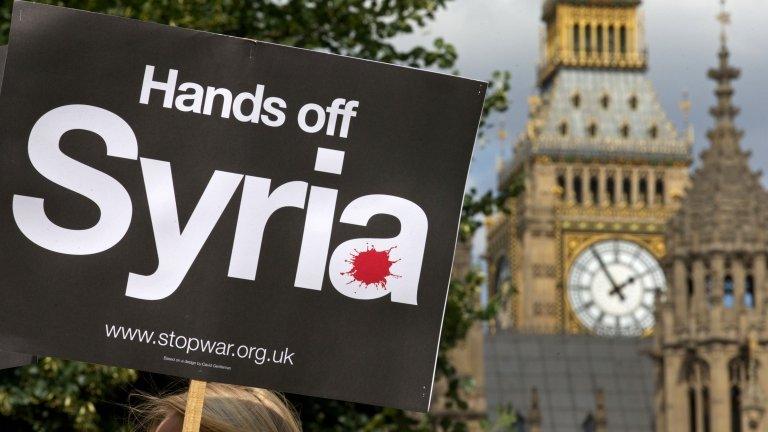UK will help destroy Islamic State, David Cameron tells US
- Published
David Cameron speaking on NBC: "I want Britain to do more"
Britain is committed to working with the US to destroy the "caliphate" set up by Islamic State militants in Iraq and Syria, the prime minister has said.
David Cameron told US TV network NBC, external he wanted the UK to do more but said he needed to "take Parliament with him".
MPs voted against proposed military action in Syria two years ago.
Lord Richards, former chief of defence staff, called for a new strategy to defeat IS, saying he suspected ground troops would be deployed in the future.
Mr Cameron is due to use a speech on Monday to warn young Britons tempted to join IS fighters they will end up as little more than "cannon fodder".
"If you are a boy, they will brainwash you, strap bombs to your body and blow you up. If you are a girl, they will enslave and abuse you," he will say.
'Standard practice'
Speaking about the UK's possible role in fighting the group, Mr Cameron told NBC: "I want Britain to do more. I'll always have to take my parliament with me.
"We're talking and discussing at the moment, including with the opposition parties in Britain, what more we can do. But be in no doubt, we're committed to working with you to destroy the caliphate in both countries."
Lord Richards: "We need to effectively get on a war footing"
Speaking on the BBC's Andrew Marr Show, Lord Richards said military leaders need to "look again" at the strategy to defeat IS, saying the current plan "won't work in the time I think we have available".
He said the current strategy - of training and equipping local fighters to do the "hard work" - could prove successful, but warned the "scale of effort" going into it was "woefully insufficient".
"If you really want to get rid of them we effectively need to get on a war footing," he told the programme, saying he suspected UK and US troops would, in the future, have to join ground efforts against IS.
But new Liberal Democrat leader Tim Farron said he was "deeply worried" by the tone of Mr Cameron's comments, saying he was playing to the "ISIS narrative".
"What we ought to be doing is to get behind the Muslim communities in that region and supporting them through diplomatic means," he told Sky News.
Tory MP Julian Lewis, chairman of the Defence Select Committee, also criticised the prime minister, saying had been making up policy towards IS "on the hoof".
Embedded pilots
Mr Lewis - one of 30 Conservative MPs who voted against military action in Syria in 2013 - said he would only now support action if Mr Cameron presented parliament with a strategy that could produce "a decisive result".
"How I vote will depend upon whether the prime minister - instead of making this up on the hoof as has been the case, I'm afraid, up until now - presents parliament with an integrated strategy, approved jointly by the heads of the armed forces," he said.
Last week, Labour's interim leader Harriet Harman was invited to a National Security Council briefing on the threat in Syria - which was seen as a further sign of a possible parliamentary vote to extend air strikes in the autumn.
But Labour and the Lib Dems have called for an explanation in Parliament after it emerged that UK pilots had taken part in bombing raids over Syria despite MPs having approved action against IS only in Iraq.
Downing Street has confirmed that Mr Cameron was aware of the Syria missions flown by UK aircrew embedded with US and Canadian forces.
And Defence Secretary Michael Fallon, who encouraged MPs to consider military action in Syria earlier this month, has defended the UK involvement saying it is "standard operating practice".

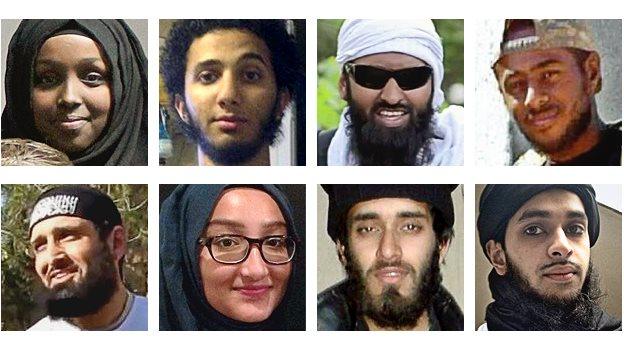
At least 700 people from the UK are known to have travelled to support or fight for jihadist organisations in Syria and Iraq

'British values'
Mr Cameron is expected to give a speech on Monday setting out the government's future strategy to combat radicalisation and extremism.
He is expected to say: "British values are our strongest weapon in the battle against the twisted narrative of Islamist extremists.
"Wherever we are from, whatever our background, whatever our religion, there are things we share together.
"We are all British. This is the home we have built together. We can all feel part of this country - and we must all now come together and stand up for our values with confidence and pride.
"And as we do so we should together challenge the ludicrous conspiracy theories of the extremists."
It follows a speech the prime minister made in June when he warned of the dangers posed by those who "quietly condone" IS militants' extremist ideology and called on Muslims to do more within their own communities.
- Published19 July 2015
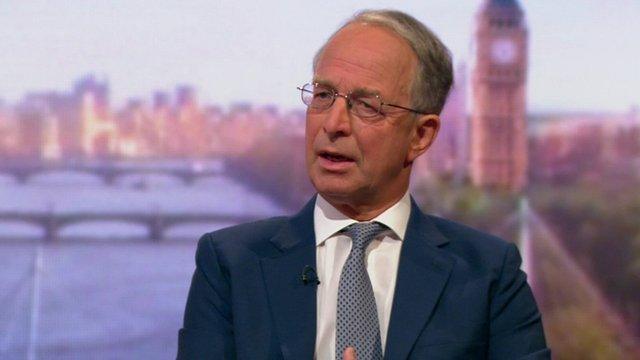
- Published17 July 2015
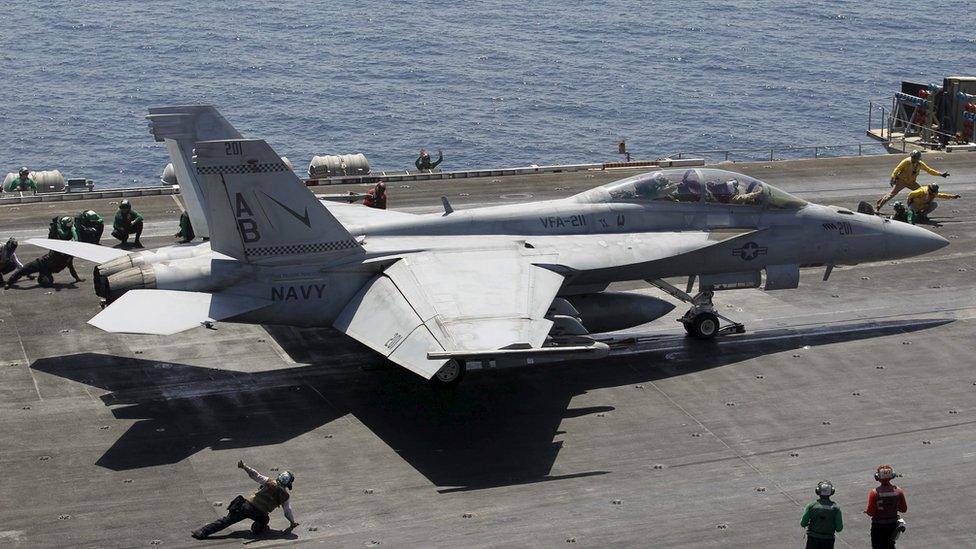
- Published12 July 2015
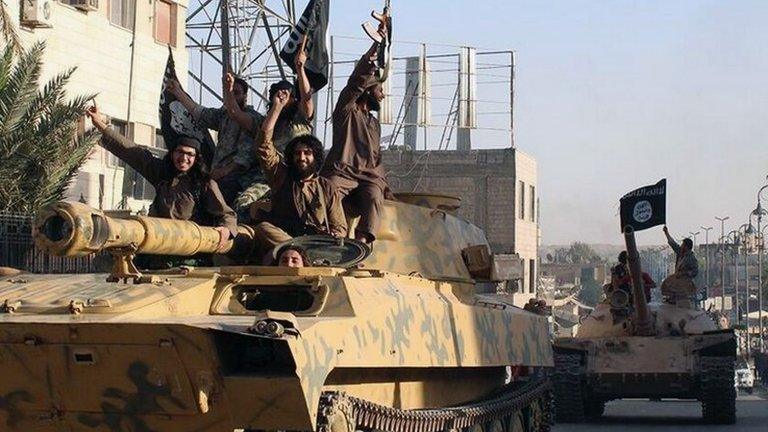
- Published3 July 2015
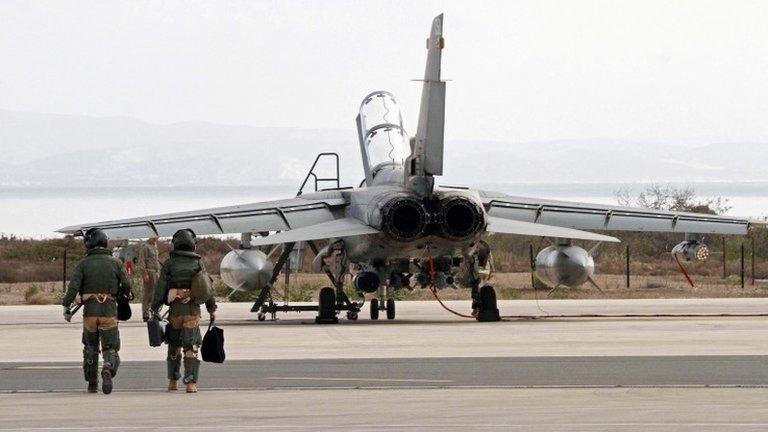
- Published19 June 2015
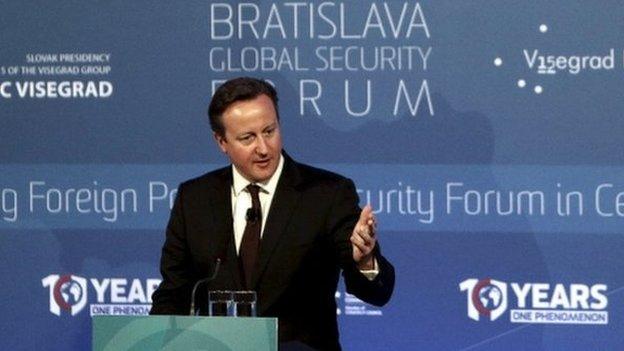
- Published30 August 2013
